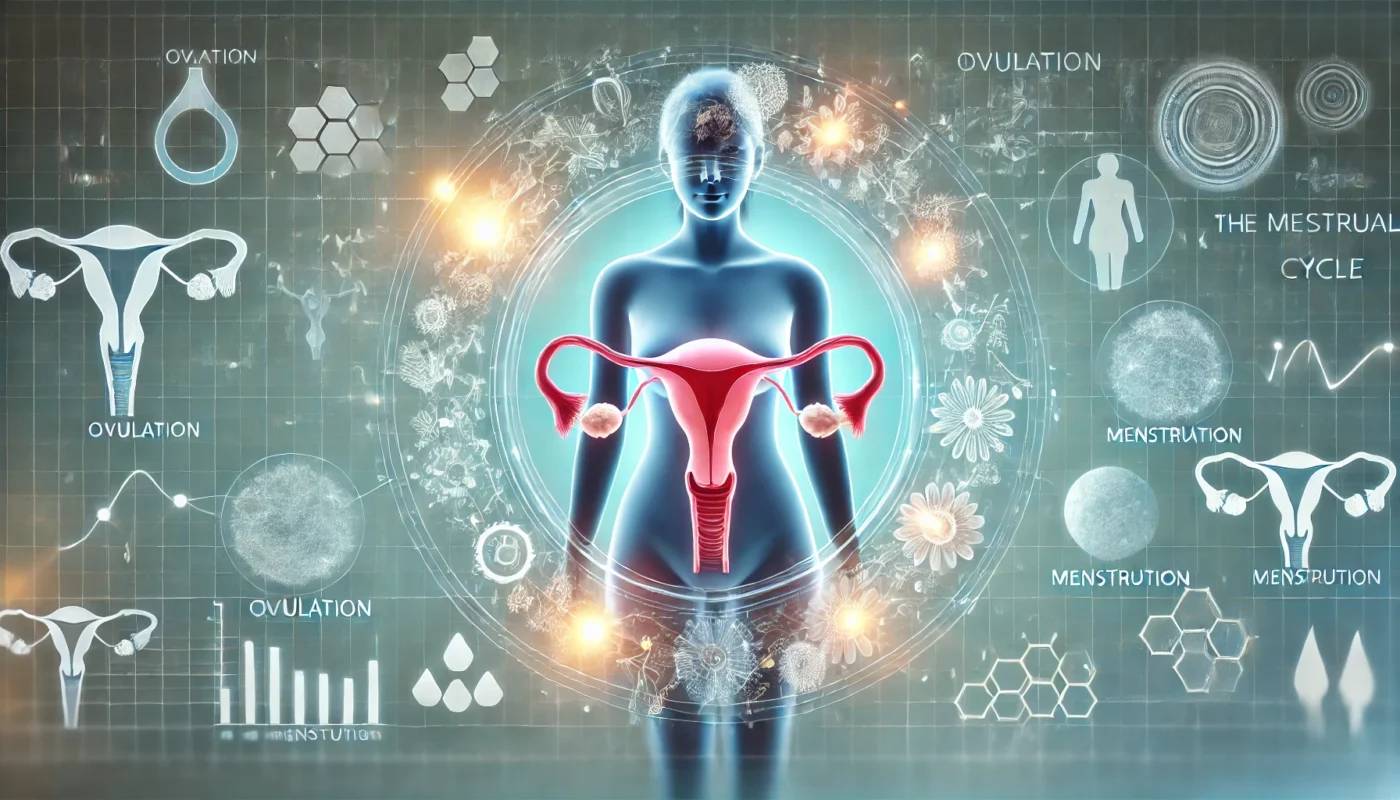The menstrual cycle is a complex interplay of hormones that governs reproductive health in women. While it is a natural process, irregularities in the menstrual cycle—such as missed periods, heavy bleeding, or severe premenstrual symptoms—are common and can impact overall well-being. Hormonal imbalances, nutritional deficiencies, and lifestyle factors often contribute to these irregularities.
Zinc, an essential trace mineral, plays a vital role in maintaining hormonal balance, supporting ovulation, and mitigating symptoms of menstrual disorders. Zinc picolinate, a highly bioavailable form of zinc, ensures efficient absorption and utilization in the body, making it an effective supplement for promoting a regular, healthy menstrual cycle. This article explores the science behind zinc picolinate’s role in menstrual cycle regulation, supported by clinical studies and practical insights.
You May Also Like:
Zinc Picolinate for Boosting Fertility After 35: A Natural Approach
Zinc Picolinate for Reducing Hormonal Migraines: What You Need to Know
Understanding Menstrual Cycle Irregularities
A typical menstrual cycle lasts 28 days, although cycles ranging from 21 to 35 days are considered normal. Irregularities occur when this pattern is disrupted, often signaling underlying health issues.
Common Menstrual Irregularities Include:
- Oligomenorrhea: Infrequent periods.
- Amenorrhea: Absence of menstruation for three or more months.
- Menorrhagia: Heavy or prolonged bleeding.
- Dysmenorrhea: Painful periods.
- Premenstrual Syndrome (PMS): Emotional and physical symptoms before menstruation.
Causes of Irregular Menstrual Cycles:
- Hormonal imbalances (e.g., estrogen and progesterone dysregulation).
- Polycystic ovary syndrome (PCOS).
- Thyroid disorders.
- Chronic stress.
- Nutritional deficiencies, including zinc.
Why Is Zinc Important for Menstrual Health?
Zinc is essential for a variety of biological processes that influence menstrual cycle regulation, including hormone synthesis, ovulation, and inflammation control. Its primary roles in menstrual health include:
- Regulating Hormones:
Zinc influences the hypothalamic-pituitary-ovarian (HPO) axis, which governs the release of hormones like luteinizing hormone (LH) and follicle-stimulating hormone (FSH) required for ovulation. - Reducing Inflammation:
Zinc modulates inflammatory cytokines, alleviating menstrual pain and premenstrual symptoms. - Improving Ovarian Function:
Zinc supports ovarian health by promoting follicle maturation and egg quality. - Supporting Progesterone Production:
Zinc is involved in the synthesis of progesterone, a hormone critical for maintaining regular cycles and a healthy uterine lining. - Mitigating PMS Symptoms:
Zinc has been shown to reduce mood swings, irritability, and fatigue associated with premenstrual syndrome.

What Is Zinc Picolinate?
Zinc picolinate is a chelated form of zinc, where zinc is bound to picolinic acid. This form enhances zinc absorption in the gastrointestinal tract, making it one of the most bioavailable zinc supplements available. For women experiencing menstrual irregularities, zinc picolinate ensures that zinc levels are optimized, supporting hormonal and reproductive health.
How Zinc Picolinate Supports Menstrual Cycle Regulation
1. Balancing Hormones
Zinc is critical for maintaining the balance of estrogen and progesterone. By supporting the HPO axis, zinc picolinate helps regulate the release of reproductive hormones, ensuring a consistent and predictable menstrual cycle.
- Study Insight: A study in Reproductive Biology and Endocrinology found that zinc supplementation improved hormone regulation in women with PCOS, reducing irregular cycles by 35%.
2. Supporting Ovulation
Ovulation is a key phase of the menstrual cycle, and disruptions in ovulation often lead to irregular periods. Zinc picolinate enhances ovarian follicle development and ensures the release of healthy eggs.
- Clinical Evidence: Research in Journal of Trace Elements in Medicine and Biology demonstrated that zinc supplementation increased ovulation rates by 15% in women with ovulatory disorders.
3. Reducing Premenstrual Symptoms
Premenstrual syndrome (PMS) can significantly impact quality of life. Zinc’s anti-inflammatory and mood-stabilizing properties make it an effective natural remedy for PMS symptoms.
- Research Finding: A study in Nutrients found that zinc supplementation reduced PMS symptoms such as mood swings, bloating, and fatigue by 30% compared to a placebo.
4. Alleviating Dysmenorrhea (Painful Periods)
Prostaglandins, inflammatory compounds released during menstruation, are responsible for period pain. Zinc picolinate inhibits prostaglandin synthesis, reducing cramping and discomfort.
- Evidence: A study in Pain Medicine reported that zinc reduced menstrual pain severity by 25% in participants with primary dysmenorrhea.
5. Supporting Egg Quality and Fertility
For women trying to conceive, zinc picolinate promotes egg quality and uterine lining health, increasing the likelihood of successful implantation and pregnancy.
- Study Insight: Research in Fertility and Sterility found that zinc supplementation improved egg quality and reduced miscarriage rates in women undergoing fertility treatments.

Zinc Deficiency and Menstrual Irregularities
Zinc deficiency is a common but often overlooked cause of menstrual irregularities. Risk factors for zinc deficiency include poor dietary intake, chronic stress, and gastrointestinal conditions that impair nutrient absorption.
Symptoms of Zinc Deficiency Include:
- Irregular or absent periods.
- Severe PMS symptoms.
- Increased menstrual pain.
- Fatigue and low energy.
- Poor immune function.
Statistics:
- A study in The American Journal of Clinical Nutrition estimated that 20% of women of reproductive age are zinc-deficient, particularly those following restrictive diets or experiencing high stress.
Dietary Sources of Zinc
While supplementation with zinc picolinate is highly effective, incorporating zinc-rich foods into the diet can also support menstrual health. Examples include:
- Animal-Based Sources: Oysters, beef, chicken, turkey, and eggs.
- Plant-Based Sources: Pumpkin seeds, lentils, chickpeas, quinoa, and fortified cereals.
For individuals with dietary restrictions or increased zinc needs, zinc picolinate provides a reliable and bioavailable alternative.
Recommended Dosage and Safety
The recommended dietary allowance (RDA) for zinc is:
- Adult Women: 8 mg/day
- Pregnant Women: 11 mg/day
- Lactating Women: 12 mg/day
For addressing menstrual irregularities, therapeutic doses of zinc picolinate typically range from 15–30 mg/day. Excessive zinc intake (above 40 mg/day) can cause:
- Nausea
- Reduced copper absorption
- Gastrointestinal discomfort
Note: Always consult with a healthcare provider before starting supplementation to determine the appropriate dosage and ensure safety.

Integrating Zinc Picolinate into a Menstrual Health Routine
- Take with Food: Zinc picolinate is best absorbed when taken with meals, particularly meals containing protein.
- Pair with Magnesium and Vitamin B6: These nutrients work synergistically with zinc to support hormonal health and reduce PMS symptoms.
- Monitor Cycles: Track changes in menstrual regularity, flow, and symptoms to assess the effectiveness of zinc supplementation.
- Adopt a Balanced Diet: Combine zinc supplementation with a diet rich in whole grains, lean proteins, and healthy fats for optimal hormonal health.
Who Can Benefit from Zinc Picolinate for Menstrual Cycle Regulation?
- Women with Irregular Cycles: Zinc picolinate supports hormonal balance and ovulation.
- Those with PCOS: Zinc improves ovarian function and reduces androgen excess.
- Women Experiencing Severe PMS: Zinc mitigates mood swings, bloating, and other premenstrual symptoms.
- Adolescents with Painful Periods: Zinc alleviates dysmenorrhea and supports regular cycles during puberty.
Future Research Directions
While current studies highlight the benefits of zinc picolinate for menstrual health, further research could explore:
- Its long-term effects on cycle regularity and fertility.
- Synergistic benefits with other micronutrients like iodine and selenium.
- Zinc’s role in managing menopause symptoms and hormonal transitions.
Conclusion: Zinc Picolinate for Menstrual Cycle Health
Zinc picolinate offers a natural, science-backed solution for promoting a regular and healthy menstrual cycle. By balancing hormones, supporting ovulation, and alleviating symptoms of PMS and dysmenorrhea, zinc picolinate addresses the underlying factors contributing to menstrual irregularities.
For women seeking a holistic approach to menstrual health, incorporating zinc picolinate into their daily routine provides significant benefits. As always, consult with a healthcare provider to tailor supplementation to your specific needs and ensure safe and effective use.

References
- Role of zinc in female reproduction. Retrieved from: https://pmc.ncbi.nlm.nih.gov/articles/PMC8599883/
- Role of zinc in female reproduction. Retrieved from: https://pure.psu.edu/en/publications/role-of-zinc-in-female-reproduction
- The role of oxidative stress in ovarian aging: a review. Retrieved from: https://ovarianresearch.biomedcentral.com/articles/10.1186/s13048-022-01032-x
- The Impact of Minerals on Female Fertility: A Systematic Review. Retrieved from: https://www.mdpi.com/2072-6643/16/23/4068
- Zinc status and serum testosterone levels of healthy adults. Retrieved from: https://pubmed.ncbi.nlm.nih.gov/8875519/
- Zinc is an Essential Element for Male Fertility: A Review of Zn Roles in Men’s Health, Germination, Sperm Quality, and Fertilization. Retrieved from: https://pubmed.ncbi.nlm.nih.gov/30009140/
Important Note: The information contained in this article is for general informational purposes only, and should not be construed as health or medical advice, nor is it intended to diagnose, prevent, treat, or cure any disease or health condition. Before embarking on any diet, fitness regimen, or program of nutritional supplementation, it is advisable to consult your healthcare professional in order to determine its safety and probable efficacy in terms of your individual state of health.
Regarding Nutritional Supplements Or Other Non-Prescription Health Products: If any nutritional supplements or other non-prescription health products are mentioned in the foregoing article, any claims or statements made about them have not been evaluated by the U.S. Food and Drug Administration, and such nutritional supplements or other health products are not intended to diagnose, treat, cure, or prevent any disease.

